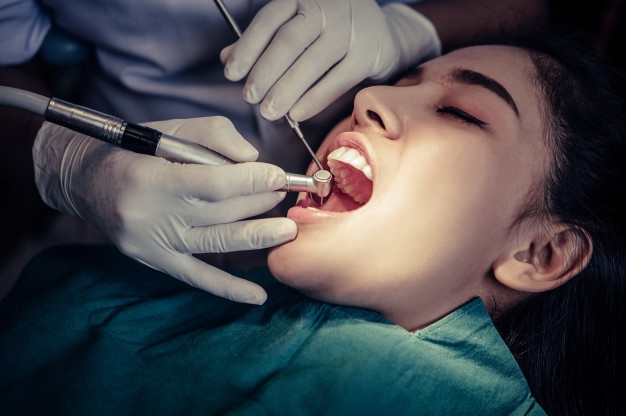According to current estimates, every four minutes, someone in the world passes away from a heart attack, according to recent estimates! Knowing how oral health impacts our overall health begs the question of whether or not there’s an association between dental health and stroke risk. Let’s check out what dental office spring valley has to say.
While dental health and stroke may seem unrelated, oral health is inextricably linked to overall health. According to studies, your mouth contains over a billion germs. And many of which are associated with illnesses that may spread to other areas of your body.
Consider what you can do to maintain the health of your mouth and body as you read on to learn more about the link between dental health and strokes.
How Is Stroke Related To Dental Health?
According to the National Health Service, mouth bacteria have been linked to various health problems, including heart disease, diabetes, pregnancy difficulties, dementia, and stroke. Moreover, C-reactive protein levels may increase if oral bacteria that cause gum disease enter the bloodstream. When a blood vessel in the brain breaks or a blood clot develops, the brain is attacked. Physical symptoms of a stroke include drooping eyebrows, weak arms, and slurred or impaired speech. It is conceivable that high levels of this hormone indicate inflammation in the blood arteries of the body, increasing the risk of a stroke or heart attack in the person.
- Periodontal Disease And Stroke
Periodontal disease has a direct connection to stroke because it promotes inflammation in the body. Gum disease is caused by a bacterial infection in the mouth, a condition that is prevalent in public toilets. If this bacterial infection enters the vascular system, it may cause inflammation and increase the risk of blood clots, resulting in a stroke. Gum disease and vascular inflammation (linked to heart disease and stroke) may or may not be related, but research indicates that they are. Numerous studies have shown a connection between gum disease and various other diseases, including diabetes, some types of cancer, and even Alzheimer’s disease.
- Stroke’s Impact On Dental Health
Because gum disease and stroke affect many people, it is critical to understand the dangers and strategies to prevent both occurring concurrently. If you or a loved one has just had a stroke, proper oral hygiene practices are even more critical. Patients who have had a stroke and want to maintain their dental health but are unable to due to cognitive or physical impairments may need assistance.
- Periodontics: Preventing Gum Disease
Gum disease affects between 60 and 65 million people worldwide or about half of the adult population. And gum bleeding is the primary symptom of gingivitis, a mild type of gum disease that is treatable. This disease, characterized by inflamed and readily bleeding gingival tissues, progresses through several phases that may be delayed with the appropriate therapy. It is an entirely avoidable illness, owing to the high concentration of germs in the mouth. If gingivitis is not treated, periodontal disease (periodontitis) may develop. This is a more severe type of gum disease that can extend to the underlying bone and ultimately tooth loss.
- Maintain Good Oral Health Following a Stroke.
Following a stroke, it is critical to maintaining good dental hygiene to avoid additional problems. According to various scientific researches, individuals who do not get routine dental treatment after a stroke are more likely to acquire ventilator-associated pneumonia, which may be deadly in certain instances.
By following a few straightforward measures, gum disease and the accompanying health risks may be prevented. The following are a few examples:
- Brush your teeth at least twice a day for a total of two minutes. Brushing your teeth is most effective in the morning and evening and after snacks and meals.
- Floss at least once a day to clean the spaces between your teeth that your toothbrush cannot reach.
- A minimum of once every six months is recommended for maintaining excellent dental health.
- Contact your dental office in spring valley immediately if you notice any dental issues, such as bleeding or swollen gums.
Takeaway
These oral hygiene recommendations may help you avoid gum disease and associated oral complications while decreasing your chance of developing other health problems, such as strokes. And dental office spring valley is always ready to assist you in this matter.
Always remember that prevention is always better than cure!!









